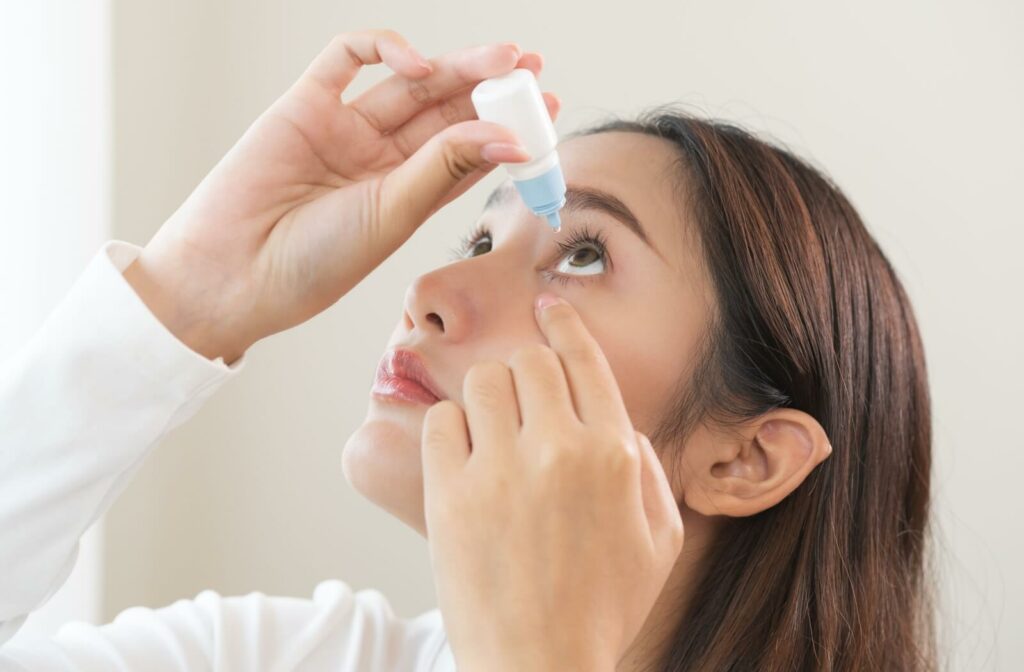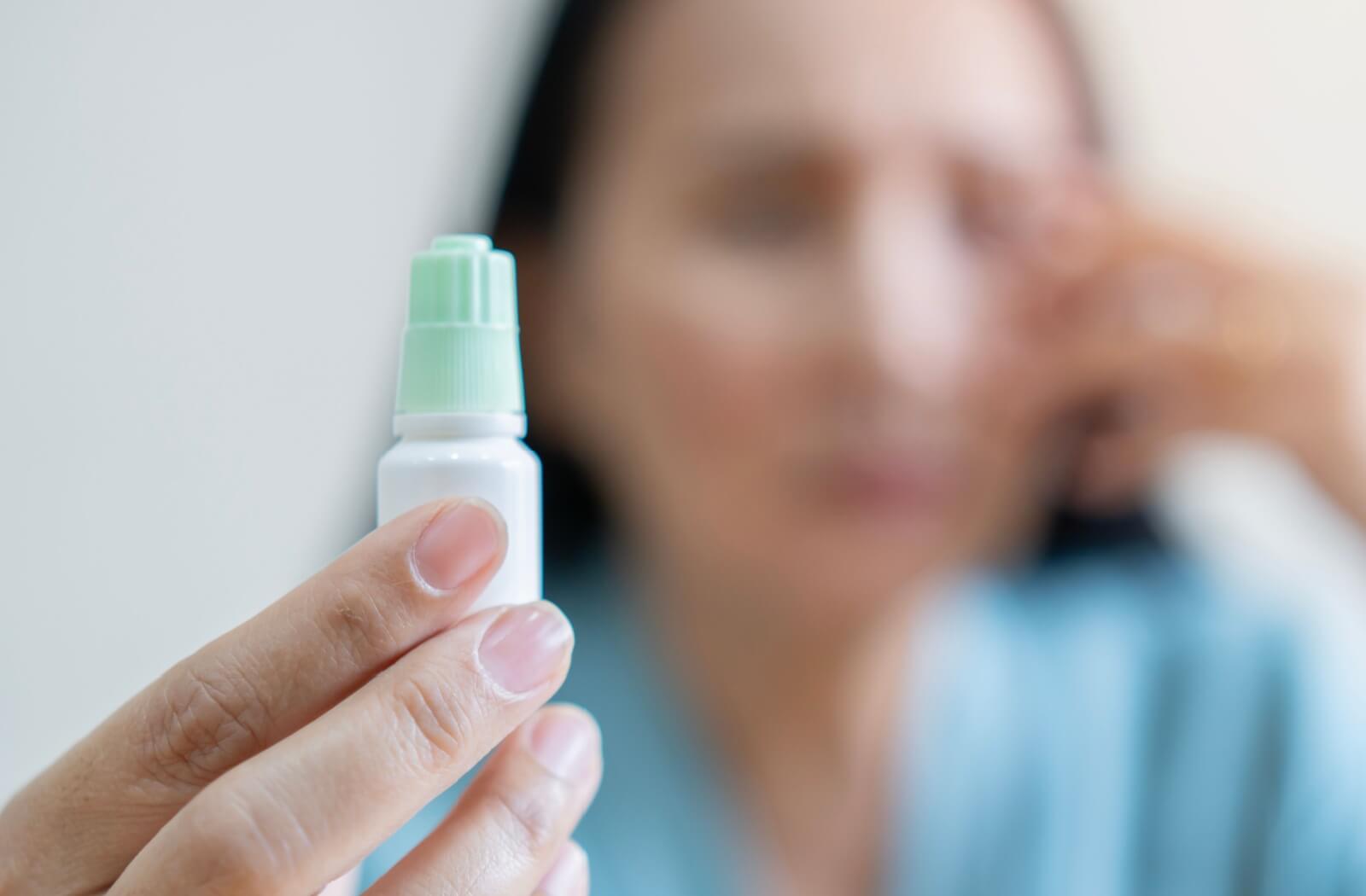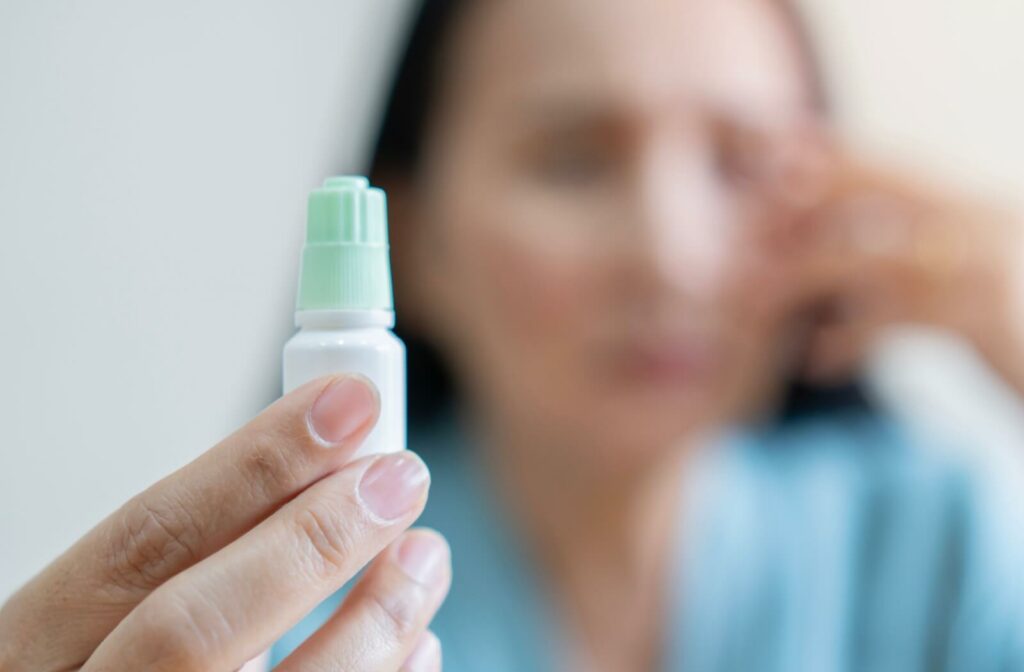Eye drops are a staple for many, whether to soothe dry eyes after hours at a computer, relieve itchiness from seasonal allergies, or treat specific eye conditions. However, if your eyes are causing you problems and your only recourse is that old bottle in the bottom of your bag, are eye drops really safe to use?
You should avoid using expired eye drops, as they may lose their effectiveness and could cause harm to your eyes. If you discover you’ve been using expired eye drops without realizing it, there’s no need to worry. Your optometrist can guide you in keeping your eyes healthy with eye drops and more.
What Happens When Eye Drops Expire?
Eye drops, just like any pharmaceutical product, include an expiration date for a reason. The chemical composition of eye drops changes over time due to environmental factors such as air, light, and temperature.
Here’s what typically happens when eye drops expire:
- Active ingredients degrade: Over time, the active compounds in the drops lose their potency. You may find that they no longer relieve your symptoms effectively or, even worse, that they aren’t treating your eye condition as they should.
- Risk of bacterial growth: For preservative-free eye drops or improperly stored bottles, bacteria may develop once they pass the expiration date, causing eye infections or other complications.
Keep in mind that there’s a difference between the date on the bottle and how long eye drops last once you open them. Eye drops have a shelf life of about 1–2 years, but you only have a limited time to use your drops once you break the seal. It can be difficult to give an exact number here, as it depends on the type of eye drops
Preservative-free drops are typically good for around 24 hours after they’re exposed to air. Other types could last up to 3 months. However, if you don’t remember when you opened the bottle, it’s usually better to be safe than sorry and not use them.
You can sometimes tell if your eye drops have expired if the liquid is a strange colour or has a strange odour or texture. This can signal that the drops aren’t safe to use.
Is It Dangerous to Use Expired Eye Drops?
The safety of expired eye drops varies depending on the type of drops, how long they’ve been expired, and storage conditions. It’s important to exercise caution regarding these factors.
Different types of eye drops have varying risks. Preservative-free eye drops are typically sold in single-use vials and lack preservatives that inhibit bacterial growth. These drops are good for people with sensitive eyes or who tend to use eye drops frequently. Since they’re more prone to contamination after opening, never use these beyond their expiration date as the seal may have failed and allowed bacteria to grow.

While preservatives can help extend the life of eye drops by preventing bacterial growth, the active ingredients still degrade over time. You may not immediately notice any problems using expired eye drops with preservatives, but they could still lead to ineffective treatment and potential eye irritation.
Specialty drops like those containing antibiotics or steroids are particularly sensitive to chemical changes. Using expired products could result in improper treatment of infections or irritation, potentially worsening existing conditions. Antibiotic eye drops could even fail to treat your infection while contributing to antibiotic resistance.
What To Do if You’ve Used Expired Eye Drops
Accidents happen. If you’ve already used expired eye drops, monitor your eyes closely for the following symptoms:
- Redness
- Swelling or discomfort
- Persistent itching
- Blurry vision
If you notice anything unusual, contact your optometrist promptly for advice.
Finding Dry Eye Relief Without Using Expired Eye Drops
A common use of eye drops is for treating dry eye. If you’ve discovered that your eye drops are expired and aren’t able to replace them right away, here are safe alternatives to soothe your dry eyes in the meantime:
- Warm compresses: Applying a clean, warm washcloth to closed eyelids can help relieve conditions like dryness and irritation.
- Artificial tears in single-use vials: Keep some preservative-free, single-use artificial tears on hand as a backup option—they’re less likely to expire before use.
- Hydrate and blink: Increasing your water intake and taking breaks to blink while working at a screen can naturally improve eye hydration.
These alternatives offer temporary relief, but they can’t replace the tailored benefits of properly stored, non-expired eye drops.
Choose Fresh Over Expired Every Time
Your eyes are as unique as your fingerprints, and they deserve safe and effective care. While expired eye drops may seem harmless, they risk exposing your eyes to irritation, contamination, or reduced treatment effectiveness. Keep an eye on expiration dates, store your drops correctly, and adopt safe alternatives when needed.
If you’re unsure about your eye drops or concerned about an eye condition, reach out to our friendly team. You take your eye care seriously, and so do we. With tools and tailored care to keep your vision clear and your eyes healthy, Arc Eye Care knows what it takes to keep you seeing your best.
Book your appointment with us today and put your eye health first.


